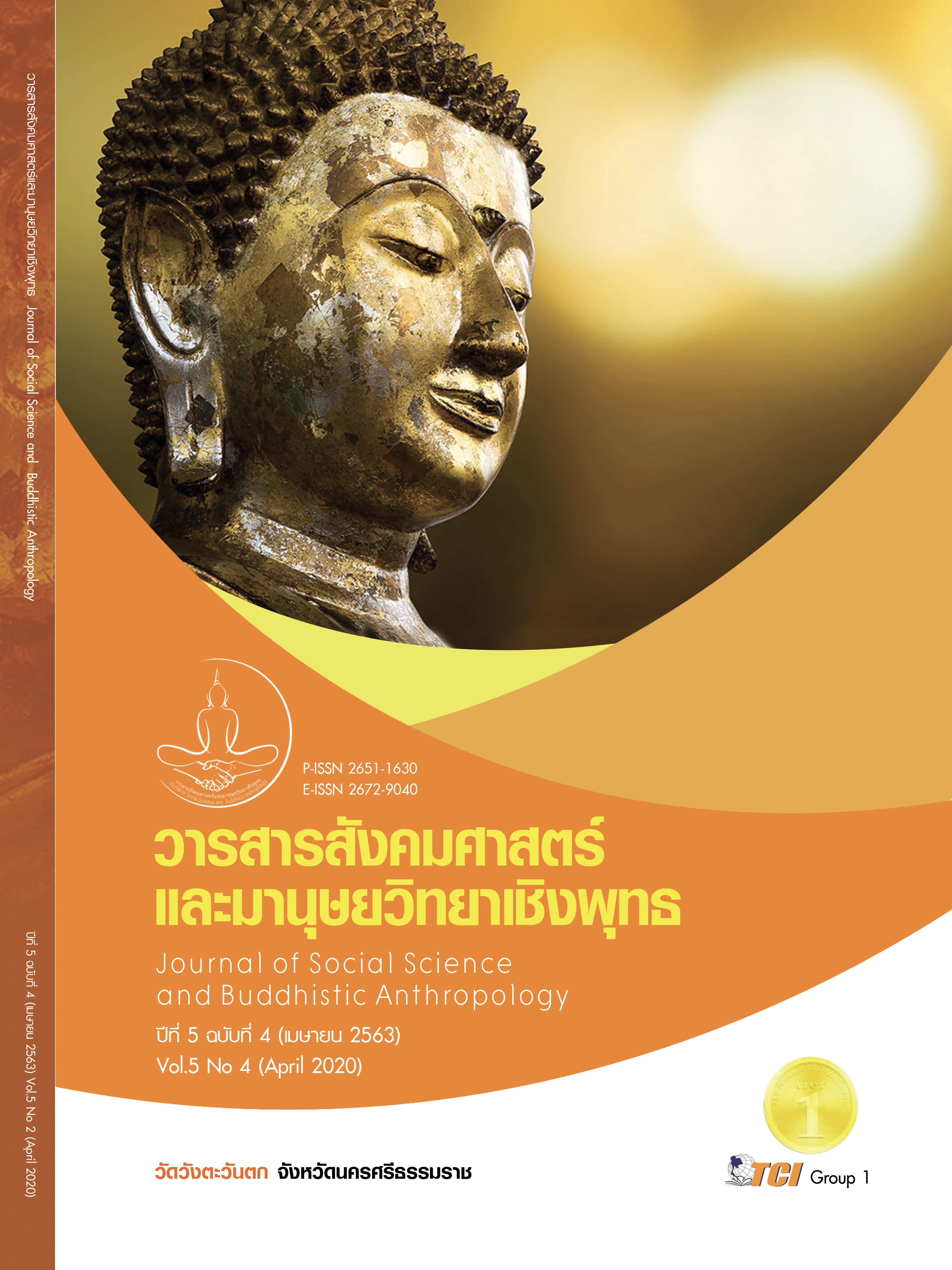A BUDDHIST INTEGRATION APPROACH IN IMPROVING PUBLIC MIND FOR CHARITY ORGANIZATION STAFF
Keywords:
Buddhist Integration, Public Mind Improving, Charity Organization StaffAbstract
The objective of this research paper is to 1) study the working conditions and public mind of personnel in public charity organizations, 2) study the theories of public mind and public mind development in Buddhism and modern science, 3) propose guidelines for Buddhist integrated public mind improving for public charity organizations. Research methodology Is a qualitative research By means of document studies and in - depth interviews. Data providers were chosen from 15 executives or supervisors of charitable organizations from 5 well - known charitable organizations in Bangkok and suburbs. Use the Noble Truths Principle as a tool for data analysis. The findings prove that the operating conditions of charitable organizations are different, depending on the history, objectives and organizational structure. The public mind of personnel still has problems with conflicts between organizations. And exploitation The public mind in Buddhism is more profound than in modern science, which is a duty conscious with self -sacrifice for the common good. Consisting of faith Responsible for being a member of society The main public mind development in the Buddhist are the use of threefold principles, Individual duties And the Buddhism Polishing. The important public mind development in modern science is cognitive learning and socialization. Guidelines for Buddhist integrated public mind improving for public charity organization staffs include 1) Direct, which include integration of the threefold principles, Individual duties and Buddhist Polishing together with the original public mind development methods used by the organization. 2) Indirectly, include the integration of individual duties and socialization through social institutions such as schools, mass media.
References
กิตติพงษ์ บูรณเฉลิมพงศ์. (2555). จริยธรรมของอาสาสมัครในหน่วยกู้ภัย กรณีศึกษามูลนิธีธรรมรัศมีมณีรัตน์ จังหวัดชลบุรี. วารสารการเมือง การบริหารและกฎหมาย, 4(3). 359-377.
ฐิติกร เศวตนันทน์. (2 กุมภาพันธ์ 2561). แนวทางการพัฒนาจิตสาธารณะของบุคลากรองค์กรสาธารณกุศลเชิงพุทธบูรณาการ. (ธนบดี ครองยุติ, ผู้สัมภาษณ์)
เทียรพชร พิมพ์ขุมเหล็ก. (2552). แนวคิด ธรรม 4 ประการ ที่ส่งผลต่อประสิทธิภาพในการปฏิบัติงานของหน่วยกู้ภัยมูลนิธิธรรมรัศมีมณีรัตน์ จังหวัดชลบุรี. ใน วิทยานิพนธ์บริหารธุรกิจมหาบัณฑิต สาขาการบริหารและพัฒนาทรัพยากรมนุษย์. มหาวิทยาลัยศรีปทุม.
ปิยะลักษณ์ ถิ่นแก้ว. (2 กุมภาพันธ์ 2561). แนวทางการพัฒนาจิตสาธารณะของบุคลากรองค์กรสาธารณกุศลเชิงพุทธบูรณาการ. (ธนบดี ครองยุติ, ผู้สัมภาษณ์)
พระพรหมคุณาภรณ์ (ป.อ. ปยุตโต). (2547). พุทธธรรม ฉบับปรับขยาย. กรุงเทพมหานคร: ผลิธรรม.
โพสต์ทูเดย์. (2560). วิพากษ์ปัญหา "โพสต์ภาพศพ" จากมุมมองกู้ภัย-สื่อ. เรียกใช้เมื่อ 5 ธันวาคม 2562 จาก https://www.posttoday.com/politic/report/502900
วัชระ งามจิตเจริญ. (2556). พุทธศาสนาเถรวาท. กรุงเทพมหานคร: มหาวิทยาลัยธรรมศาสตร์.
สมานใจ ขันทีท้าว. (2546). จริยธรรมของอาสาสมัครในหน่วยกู้ภัย : ศึกษากรณีมูลนิธิร่วมกตัญญู. ใน วิทยานิพนธ์ศิลปศาสตรมหาบัณฑิต สาขาจริยศาสตร์ศึกษา. มหาวิทยาลัยมหิดล.
สำนักงานเลขาธิการสภาการศึกษา. (2548). มาตรฐานการศึกษาของชาติ. กรุงเทพมหานคร: สำนักงานเลขาธิการสภาการศึกษา.









